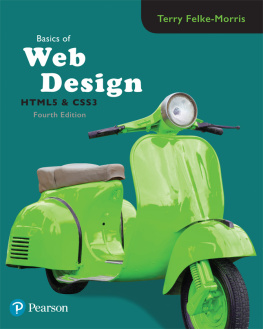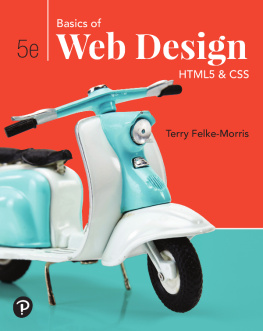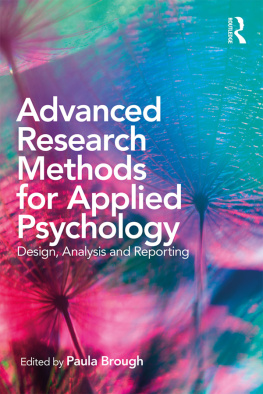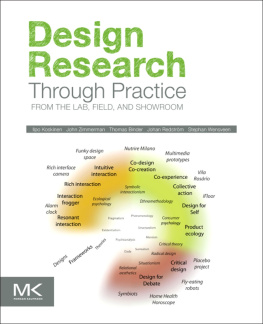APPLIED RESEARCH DESIGN
APPLIED SOCIAL RESEARCH METHODS SERIES
Series Editors
LEONARD BICKMAN, Peabody College, Vanderbilt University, Nashville
DEBRA J. ROG, Vanderbilt University, Washington, DC
1. SURVEY RESEARCH METHODS (Second Edition)
by FLOYD J. FOWLER, Jr.
2. SYNTHESIZING RESEARCH (Third Edition)
by HARRIS COOPER
3. METHODS FOR POLICY RESEARCH
by ANN MAJCHRZAK
4. SECONDARY RESEARCH (Second Edition)
by DAVID W. STEWART and MICHAEL A. KAMINS
5. CASE STUDY RESEARCH (Second Edition)
by ROBERT K. YIN
6. META-ANALYTIC PROCEDURES FOR SOCIAL RESEARCH Revised Edition)
by ROBERT ROSENTHAL
7. TELEPHONE SURVEY METHODS (Second Edition)
by PAUL J. LAVRAKAS
8. DIAGNOSING ORGANIZATIONS (Second Edition)
by MICHAEL I. HARRISON
9. GROUP TECHNIQUES FOR IDEA BUILDING (Second Edition)
by CARL M. MOORE
10. NEED ANALYSIS
by JACK McKILLIP
11. LINKING AUDITING AND METAEVALUATION
by THOMAS A. SCHWANDT and EDWARD S. HALPERN
12. ETHICS AND VALUES IN APPLIED SOCIAL RESEARCH
by ALLAN J. KIMMEL
13. ON TIME AND METHOD
by JANICE R. KELLY and JOSEPH E. McGRATH
14. RESEARCH IN HEALTH CARE SETTINGS
by KATHLEEN E. GRADY and BARBARA STRUDLER WALLSTON
15. PARTICIPANT OBSERVATION
by DANNY L. JORGENSEN
16. INTERPRETIVE INTERACTIONSM
by NORMAN K. DENZIN
17. ETHNOGRAPHY (Second Edition)
by DAVID M. FETTERMAN
18. STANDARDIZED SURVEY INTERVIEWING
by FLOYD J. FOWLER, Jr. and THOMAS W. MANGIONE
19. PRODUCTIVITY MEASUREMENT
by ROBERT O. BRINKERHOFF and DENNIS E. DRESSLER
20. FOCUS GROUPS
by DAVID W. STEWART and PREM N. SHAMDASANI
21. PRACTICAL SAMPLING
by GARY T. HENRY
22. DECISION RESEARCH
by JOHN S. CARROLL and ERIC J. JOHNSON
23. RESEARCH WITH HISPANIC POPULATIONS
by GERARDO MARIN and BARBARA VANOSS MARIN
24. INTERNAL EVALUATION
by ARNOLD J. LOVE
25. COMPUTER SIMULATION APPLICATIONS
by MARCIA LYNN WHICKER and LEE SIGELMAN
26. SCALE DEVELOPMENT
by ROBERT F. DeVELLIS
27. STUDYING FAMILIES
by ANNE P. COPELAND and KATHLEEN M. WHITE
28. EVENT HISTORY ANALYSIS
by KAZUO YAMAGUCHI
29. RESEARCH IN EDUCATIONAL SETTINGS
by GEOFFREY MARUYAMA and STANLEY DENO
30. RESEARCHING PERSONS WITH MENTAL ILLNESS
by ROSALIND J. DWORKIN
31. PLANNING ETHICALLY RESPONSIBLE RESEARCH
by JOAN E. SIEBER
Other volumes in this series are listed at the back of the book
Copyright 1993 by Sage Publications, Inc.
All rights reserved. No part of this book may be reproduced or utilized in any form or by any means, electronic or mechanical, including photocopying, recording, or by any information storage and retrieval system, without permission in writing from the publisher.
For information address:
| SAGE Publications, Inc. 2455 Teller Road Newbury Park, California 91320 E-mail: SAGE Publications Ltd. 6 Bonhill Street London EC2A 4PU United Kingdom SAGE Publications India Pvt. Ltd. M-32 Market Greater Kailash I New Delhi 110 048 India |
Printed in the United States of America
Library of Congress Cataloging-in-Publication Data
Hedrick, Terry E. (Terry Elizabeth)
Applied research design : a practical guide / Terry E. Hedrick, Leonard Bickman, Debra J. Rog.
p. cm. (Applied social research methods series : 32)
Includes bibliographical references and index.
ISBN 0-8039-3233-2 (c1.)ISBN 0-8039-3234-0 (pb)
1. Social sciencesResearchPlanning. 2. Social sciencesMethodology. I. Bickman, Leonard, 1941- . II. Rog, Debra J. III. Title. IV. Series: Applied social research methods series : v. 32.
H62.H3713 1993
300.72dc20 92-37330
00 01 02 03 11 10 9
Sage Production Editor: Tara S. Mead
Foreword
When my friends Terry Hedrick, Len Bickman, and Debra Rog asked me to write a foreword to their book, I was pleased but a little apprehensive. To my knowledge, there has never before been a book on planning applied research that is aimed at audiences who might never before have done such research. This means there is no easily available standard against which their work can be measured. But my own experience in planning and conducting applied research tells me that this book is absolutely first-rate, covering all the major points clearly and succinctly. It is also an important book. I am convinced that poorly planned applied research nearly always achieves poor results. It is true that one sometimes comes across poorly planned studies where the investigators were so creative they managed to make something out of nothing, often because of their willingness to reflect deeply on their own experiences knee-deep in the muddy and to write about them clearly. But these are exceptions. Most poorly planned research never gets completed, or once completed, it is consigned to a file drawer somewhere. Planning can help avoid these problems, even though it takes time and other resources to plan well.
The novelty of this book lies not only in bringing planning to the forefront of attention, but also in how planning is conceptualized. The book begins with the telling and relevant statement that applied research planning is both a science and an art. It also reminds us on several occasions that planning is an iterative process and that replanning is sometimes called for as real-world events force deviations from the original plan. The authors particularly emphasize, however, that applied research planning is iterative in the more specific sense that the first draft of a question that has been generated after researchers have come to understand a general problem or issue still needs to be refined in the light of any feedback about the draft that interested parties to a policy or program might provide. Refining research questions over multiple occasions is crucial for enhancing their leverage whether the questions are descriptive, normative, correlative, or causal. Such planning will also help incorporate sponsors more deeply into the research and can increase the likelihood that the study results, once generated, will actually be used to change programs or policy.
Planning also has important technical aspects, and the authors rightly emphasize two of them. One is statistical power analysis. Again and again in the social sciences, we see studies being implemented that have no reasonable chance of detecting effects of the size expected given the sample sizes, variability in measures, and types of tests used. Indeed, meta-analysis would not have achieved its current high profile were it not for the omnipresence of statistically underpowered social research. The second technical issue the authors highlight concerns the study of program implementation, especially in those cases where causal questions of impact are paramount. The authors remind us how often programs are not implemented as they are supposed to be, and they remind us that this engenders the need to monitor implementation. Monitoring implementation in treatment groups needs little justification. But causal inferences are not about what goes on only in the intervention group. Rather, such inferences depend on the












